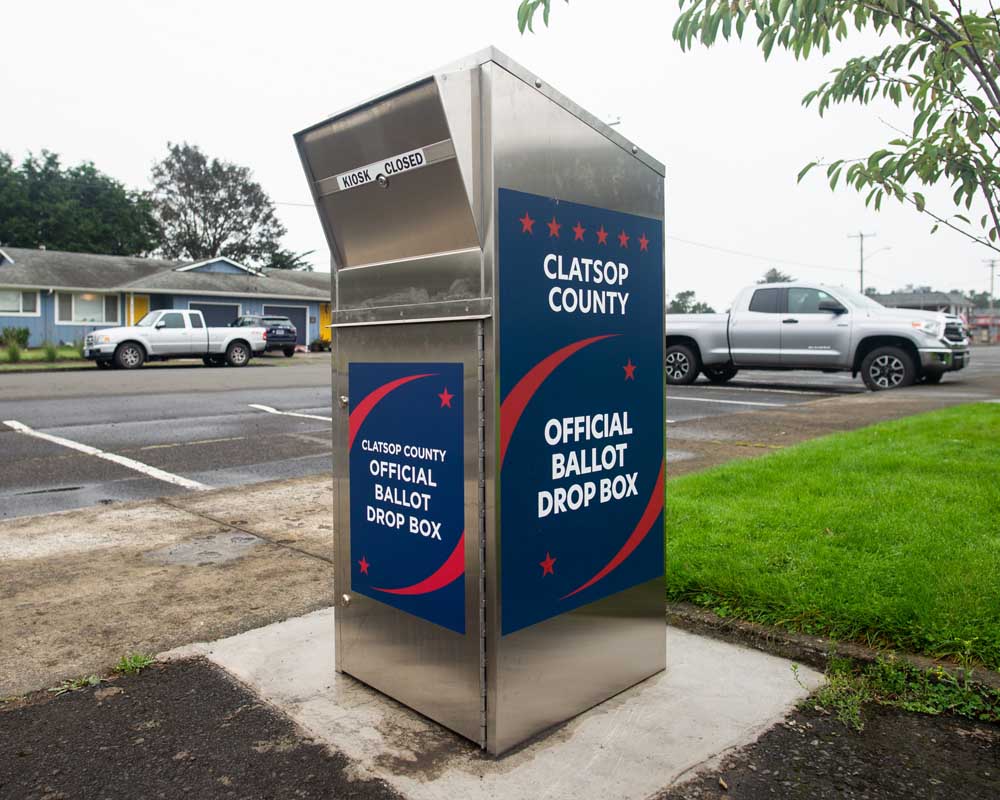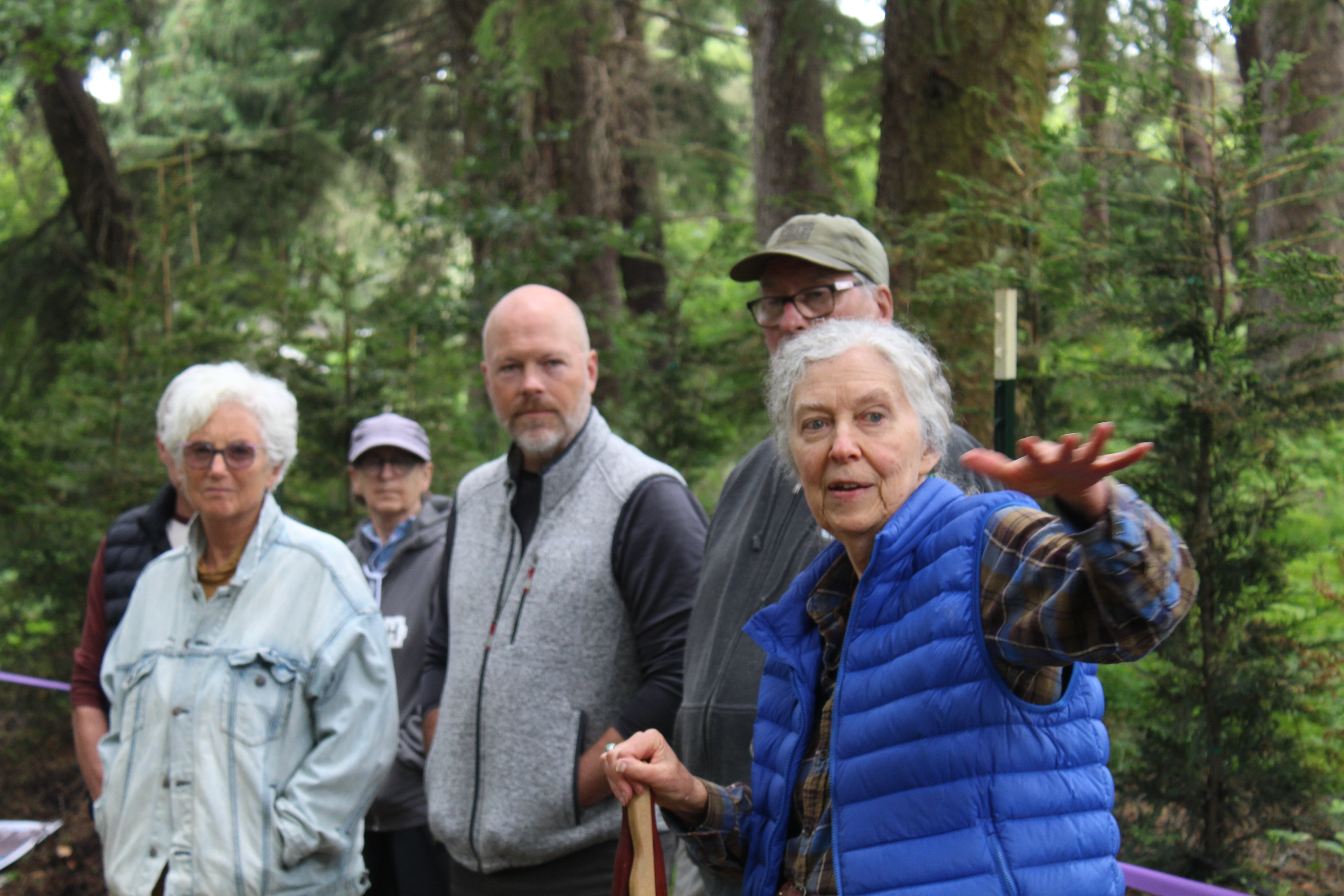Publisher’s Notebook: A shift in policy on political endorsements
Published 12:30 am Saturday, May 11, 2024

- Over the past few years, EO Media Group, the family-owned company that publishes The Astorian, has had robust discussions about the value of endorsements.
The Astorian will no longer make endorsements for candidates or ballot measures in elections.
Trending
Over the past few years, the news executives, publishers and editors at EO Media Group — the family-owned company that publishes The Astorian and more than a dozen other newspapers in Oregon and Washington state — have had robust discussions about the value of endorsements.
We have over 150 years of history in Astoria covering local news and providing a community forum on our opinion pages to debate issues and share ideas.
We recognize that some of our readers have relied on our endorsements — whether you agree or disagree — to help evaluate candidates and ballot measures at election time.
Trending
In this era of polarized politics, where misinformation and disinformation is currency, and traditional newspapers are under political and financial attacks, endorsements have the potential to undermine our work.
Our mission is to provide credible local news that our communities can trust. We believe a well-informed public keeps our communities strong.
According to the National Civic League, losing a community’s main source of news can lead to lower voter turnout, fewer people running for elected office, more corruption and less civic engagement to address important challenges.
A 2018 study by the Media Insight Project, which included surveys of the public and journalists, produced some interesting findings: “The public and journalists want the same things from the press — verified facts, supplemented by some background and analysis. But they also reveal dissatisfaction: many Americans think what they see in the news media looks largely like opinion and commentary — not the carefully reported contextualizing they hoped for.
“Moreover, the public is confused by some basic concepts of news. Half do not know what an ‘op-ed’ is. More than 4 in 10 do not know what the term ‘attribution’ means, and close to 3 in 10 do not know the difference between an ‘editorial’ and a ‘news story.’”
A Media Insight Project survey released this month found that the public relies heavily on local and national news organizations as sources for news about elections, but many people have concerns about the reliability of the information. The survey showed that both Democrats and Republicans want national media to report about candidates’ positions on key social issues and policies, along with candidates’ values and character.
In a look at newspaper endorsements for a 2022 news story, David Bauder, of the Associated Press, cited research by the American Presidency Project at the University of California, Santa Barbara.
The research found that 92 of the country’s 100 biggest newspapers by circulation endorsed a presidential candidate in 2008. By 2020, only 54 made endorsements.
The research also raised doubts about the influence of endorsements. In the 2016 presidential campaign, for example, 57 of the biggest newspapers endorsed Hillary Clinton, the Democrat, while just two picked Donald Trump, the Republican.
Closer to home, we have found that newspaper endorsements, especially in nonpartisan elections for local boards and commissions, often mirror the public’s view of candidate quality. For example, four of the five members of the Astoria City Council (Mayor Sean Fitzpatrick was unopposed) and four of the five members of the Clatsop County Board of Commissioners were endorsed by The Astorian.
Even when making these local choices, which have appeared on our opinion pages, the endorsement process is frequently misunderstood and conflated with our news reporting.
In an age of dwindling media literacy, many readers don’t discern opinion from factual reporting and construe an endorsement as bias that applies to the entire newspaper. If endorsements are a barrier to trust in our work, then we need to change.
On our opinion pages, we will continue to publish editorials, guest columns, Q&As, editorial cartoons and letters to the editor to encourage a thorough exchange of viewpoints. We will, from time to time, share our analysis of election campaigns or draw attention to political tactics.
On our news pages, we will continue to compare and contrast candidates, ballot measures and public policy trends and provide information so voters can make informed decisions at the ballot box.
We hope to arm our readers with the best possible set of facts before an election and let you make up your own minds.
A call for contributors
The Astorian encourages people on the North Coast with interesting perspectives on local and regional topics to contribute guest columns for our opinion page.
Topics can range from business, workforce and economic issues to natural resources, the environment and social services.
Guest columns are typically in the 800-word range.
People interested in submitting a guest column can contact us via email at: news@dailyastorian.com









